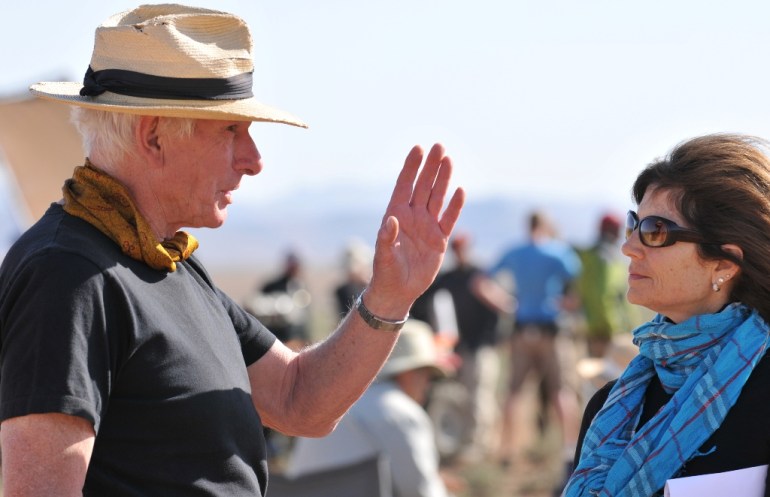If acclaimed filmmaker Peter Weir was starting out today he’d look to the small screen rather than the silver.
“I think I’d be interested in television,” the candid director tells IF magazine in an eastern Sydney hotel, pointing to the success of local dramas such as Underbelly and Chris Lilley’s comedy Summer Heights High as examples.
“I think Chris Lilley and the first series of Underbelly have shown just what you can do with television, domestically. And then possibly get sales in the UK and America as Chris Lilley has.
“So I think I’d be tentatively drawn more to television – to our own domestic market – than trying to deal with this very complex world market at the moment.”
His comments follow a recent Deloitte report, which predicted that TV would dominate the media in 2011.
The director of The Truman Show and Dead Poets Society says the local film industry’s “tough times” was “essentially related to distribution and marketing”.
“The reality of the situation is there are very few distributors and they control, in a way, what will get onto our screens – and they’ll do that at script stage,” the six-time Oscar nominee, who lives in Sydney’s north, said.
“At the moment they’re very cautious, deeply conservative, they like things that have a precedent in terms of success, so I think for young filmmakers I feel for them, it’s very hard.”
(Story continues below.)
Peter Weir (left) on the set of The Way Back.
The easy-going, laid back Weir is currently doing promotion in Australia for his latest film The Way Back, which will be released by Roadshow next week on 127 screens.
Despite Weir’s track record and the film’s epic nature, the film struggled to find distribution, before eventually being picked up by Exclusive Films’ subsidiary Newmarket Films.
Starring Ed Harris, Colin Farrell and Jim Sturgess, the World War II drama – about a group of prisoners who escape their Siberian Gulag and begin a treacherous journey across thousands of miles – was a big challenge for the filmmakers.
“There were days where I thought ‘I’m not going to make it, I’m not going to get it shot’,” says Weir, who again collaborated with award-winning cinematographer Russell Boyd (Master and Commander: The Far Side Of The World, Gallipoli, The Year Of Living Dangerously).
The film was shot over 66 days in the frozen forests of Siberia, the vast plains of Mongolia and the boiling sands of the Gobi Desert (the hardest of the locations to film in), before moving on to the Himalayas.
Weir says this harsh terrain made the actors realise what the characters were going through in the same situation.
The $US29 million flick, co-produced by National Geographic Entertainment and Imagenation Abu Dhabi, is a good comeback from Weir who hadn’t made a film since 2003’s Master and Commander.
He was inspired after reading the Slavomir Rawicz novel The Long Walk: The True Story Of A Trek To Freedom, in 2007, before working with co-writer Keith Clarke on the screenplay.
(Story continues below.)
Jim Sturgess (centre) with Peter Weir in the background on set.
“Keith did an early draft that I first read and I then completely revamped it and turned it into fiction, based on real events,” Weir says. “This is kind of an unusual project which interested me immediately.
“A lot of the things I read…I’ve seen them before. I haven’t seen this story photographed so it drew me in…immediately.”
Weir later brought the film back to Australia where several local companies were involved in post-production including Deluxe, Soundfirm and RSP.
He hopes others will also be drawn into the story, hoping it would “live with them” for years to come.
The film has struggled in the US, only making $US2.6 million since opening on January 21 but is doing well in other territories such as France, Spain and the UK, according to Box Office Mojo.
The 66-year-old storyteller, who in his spare time reads and travels, isn’t retiring anytime soon and believes he’ll continue as long as there’s a good story to tell.
When asked if he would work with troubled star Mel Gibson again following their two ‘80s projects Gallipoli (1981) and The Year Of Living Dangerously (1982), Weir enthusiastically said “oh absolutely” without hesitation.
“If it was the right part and we were both interested…he’s a terrific guy.”
Gibson has been the talk of the media world following his apparent violent split with former partner Oksana Grigorieva.
“I’m sorry for all his awful public kind of exposure – it’s a terrible price that prominent people pay today.”
The Way Back will open nationwide on February 24.



